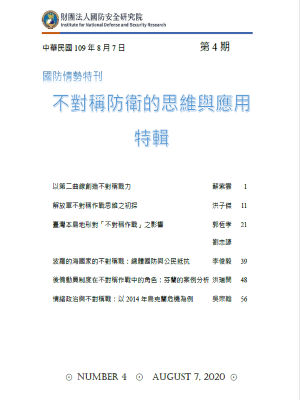伍、後備動員制度在不對稱作戰中的角色:芬蘭的案例分析
2020.08.07
瀏覽數
336
Abscract
As a country that is also geographically close to a strong neighbor, the relationship between Finland and Russia is often compared to that of Taiwan and China. In the past, there have been discussions about “Finlandization” in the political sphere. Recently, the Ministry of National Defense of the Republic of China (Taiwan) has also planned to visit Finland to investigate its military reserve system. In her second term inauguration speech on May 20, 2020, President Tsai mentioned that “substantial reform of the reserve mobilization system” is a pillar of the three important national defense reforms. This paper hopes to determine how Helsinki has constructed its reserve mobilization system to counter Moscow’s military threats.
The first part will present the asymmetry between Russia and Finland in terms of their military strength. We will also discuss Russia’s strategic operations toward Finland in recent years. These include the exploitation of political refugees, the destabilization of minorities (mainly ethnic Russians living in Finland), and the intensification of military activities near the Russo-Finnish border, all are Moscow’s major tools.
This is followed by the characteristics of Finland’s military reserve system, including the main regulations and the three kinds of training programs. The third part will concentrate on the role of the Finnish reserve system in asymmetric warfare, especially on the advantages it can bring.
Finally, conclusions are presented and suggestions are made with respect to Taiwan. “Finlandization” or “a realist foreign policy”, the policy that Helsinki pursued toward Moscow during Cold War, is still controversial.
However, strong defense capabilities, including a solid reserve system, was the key for maintaining its national independence during the difficult Cold War period. From this point of view, Taiwan should consider extending the length and the scope of its reserve training. Readiness and mobility should be taken into account when it comes to reform in the future.


